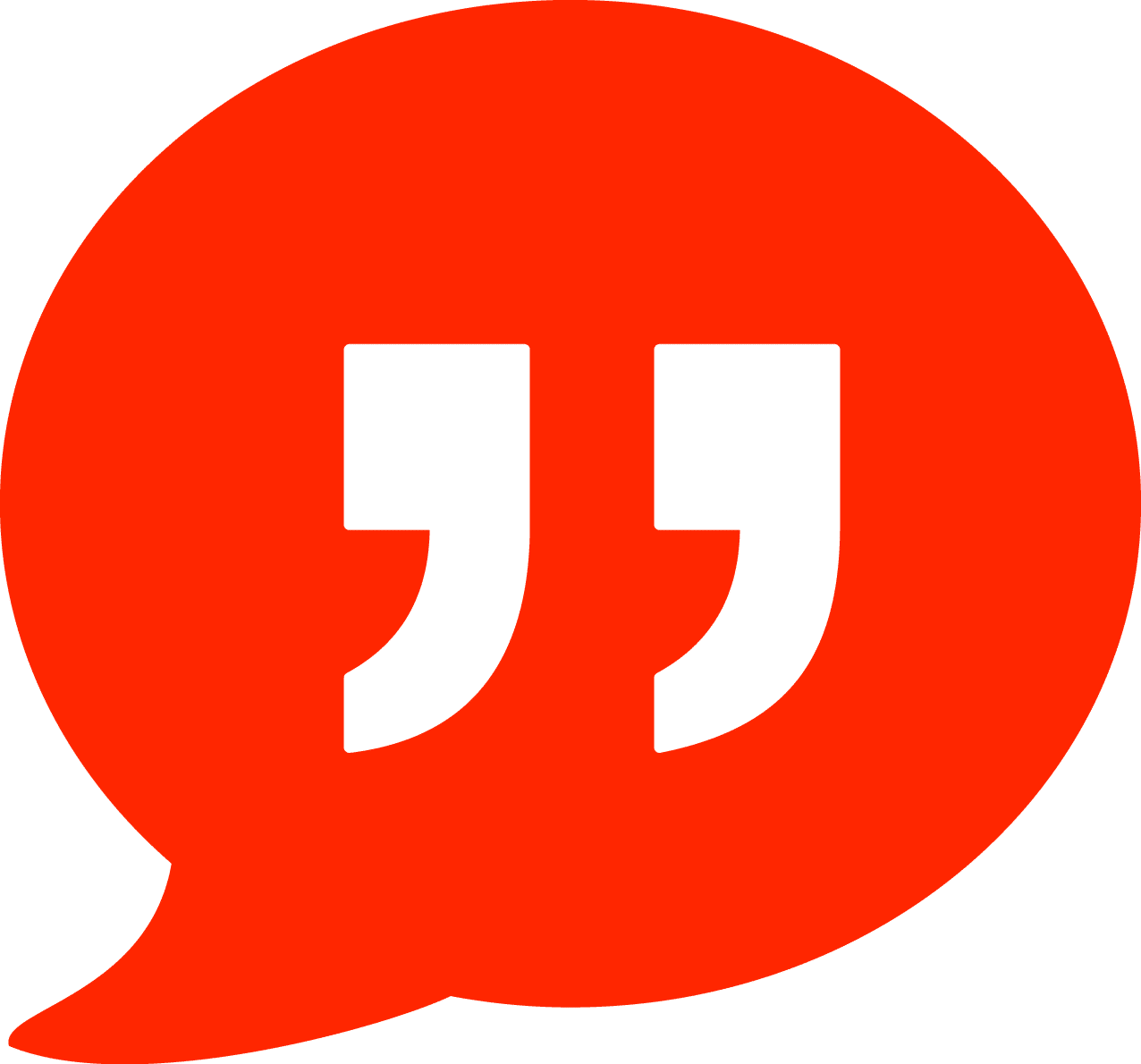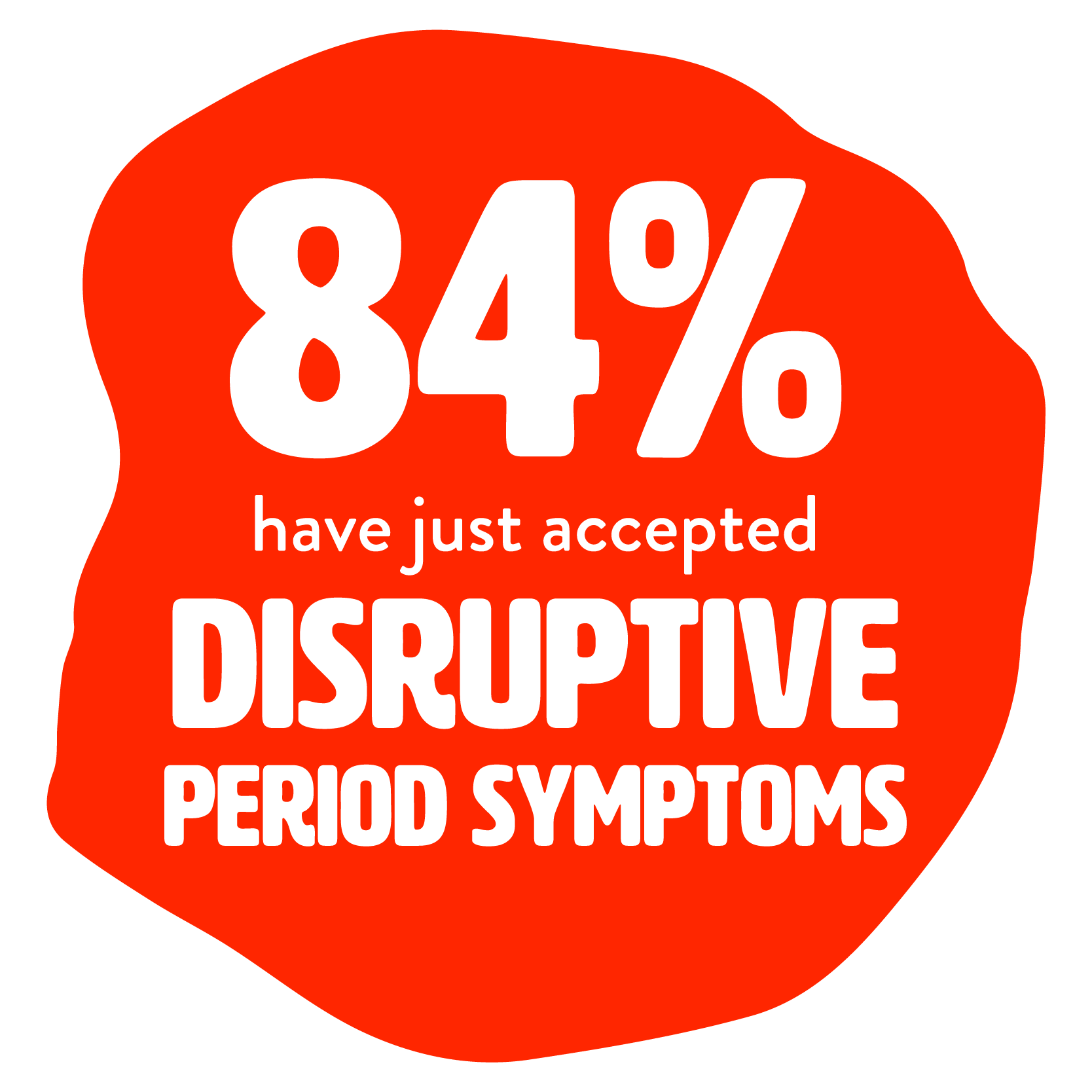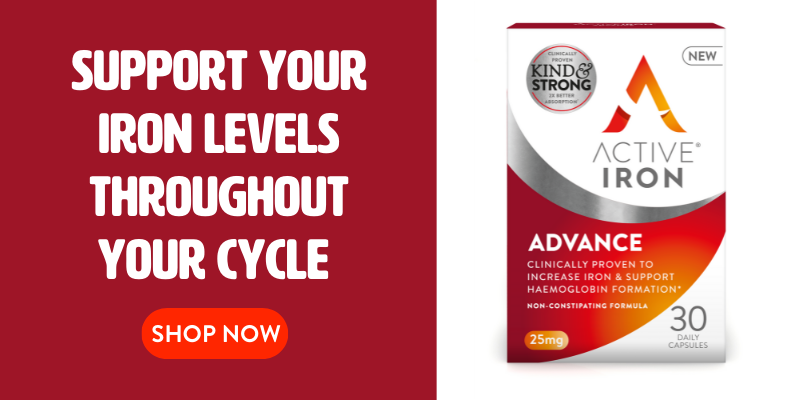Don’t accept menstrual fatigue.
Better Days. Period. is designed to prompt conversations around periods and to change the narrative about symptoms, such as menstrual fatigue, which 64% of menstruating women admit to experiencing.
Periods are a completely natural and normal part of a woman’s life yet for years society has attached a social taboo to menstruation and so the topic has not been discussed openly enough. This includes conversations about the impact of period symptoms on how women feel.
Monthly periods are the most common cause of iron loss worldwide and research shows that women of childbearing age need at least two times more iron than men. It is estimated that 220 to 250mg of iron per pint of blood is lost during menstruation. As a result of monthly periods and iron loss, feeling tired, sluggish and not yourself is the expected norm for many – but it shouldn’t be!
Starting the conversation.
We brought together a midwife, GP and professional rugby player for an honest and frank discussion about periods.
We have hosted events in London and Dublin where women of all walks of life can talk openly about their periods and how we can ensure a healthier, happier menstrual cycle.
Our research.
As part of our commitment to understanding the needs of women with periods, we conducted two surveys. The first survey was aimed at women with periods in general, while the second survey focused specifically on women with endometriosis and heavy periods.

Women with periods.
Our first survey aimed to understand the experiences and challenges faced by women with periods. We asked women about their menstrual cycles, including the length and regularity of their periods, as well as any symptoms they experienced, such as cramps, fatigue, and mood swings. Of the 2,400 women surveyed¹ across the UK and Ireland, a staggering 64% reported experiencing menstrual fatigue, an issue that can be caused by low iron levels.

GP Dr Stephanie Ooi
GP Dr Stephanie Ooi also known as @the_gp_mum

I’m surprised to learn that women are just putting up with symptoms such as tiredness and fatigue each month especially as over half (51%) admit they have never sought help from a healthcare professional.
The average woman will spend a combined total of 10 years menstruating, which means a significant portion of time could be spent feeling less than their best, so this needs to change
Heavy Periods & Endometriosis.
Our second survey focused on women with heavy periods and endometriosis, a condition in which the tissue that normally lines the inside of the uterus grows outside of it. This can cause severe pain and other symptoms, and can make menstruation particularly difficult for those affected. In this survey, we asked women about their experiences with endometriosis, including the severity of their symptoms and the impact of the condition on their daily lives. Of the 1,500 women with heavy periods and endometriosis surveyed², 87% said their quality of life was impacted by heavy periods and menstrual fatigue.


Our findings.
From our surveys, we found that many women with periods experience significant discomfort and disruption during their menstrual cycles. This is especially true for women with endometriosis and heavy periods, who often face more severe symptoms and a greater impact on their daily lives. A common theme that emerged from both surveys was the role that iron plays in menstrual fatigue.
How Active Iron can help.
Active Iron is clinically proven to increase iron and energy levels whilst being gentle on the stomach. This means it can help reduce feelings of menstrual fatigue throughout your cycle³.
Active Iron is committed to developing products and solutions that address the nutritional needs of women. Our aim is to offer iron supplements that not only combat low iron but also help alleviate menstrual fatigue, enabling women to feel more energised throughout their cycle.
¹Active Iron Survey 2021. N = 2,400. ²Active Iron Survey 2024. N = 1,500 ³Ledwidge, M. et al. PRECISION Study. Int J Clin Pharm (2023) https://doi.org/10.1007/s11096-023-01640-7


